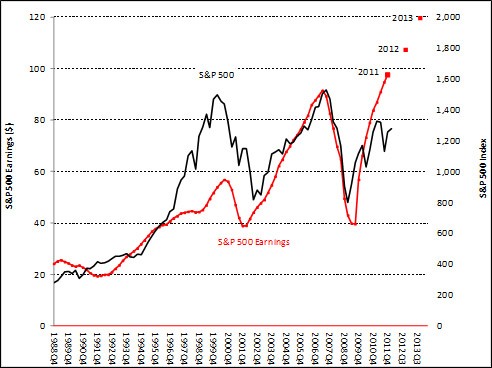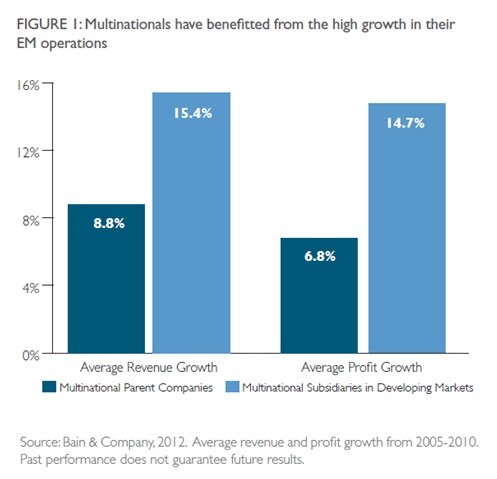Going Foreign with the S P 500
Post on: 24 Сентябрь, 2015 No Comment

August 10, 2011 By Rick Ferri
You don’t have to take money out of your U.S. stock index funds to get more international exposure. U.S.-based companies are already doing that for you as they continue to increase their presence all over the world. Today, U.S. companies conduct almost as much business overseas as they do in the U.S. Close to 50 percent of production, sales, and profits are from overseas business, and the amount paid in foreign taxes is more than that paid in U.S. taxes.
S&P 500: 2010 Global Sales, analysis recently released by Howard Silverblatt of Standard and Poor’s, shows that the percentage of sales from S&P 500 companies that report results from foreign operations show that overseas sales grew to an estimated 46 percent in 2010. That number was in the 30 percent range just a decade ago, according to data collected by the Bureau of Economic Analysis .
Information Technology continues to dominate with over 56 percent of its declared sales coming from outside of the U.S. This represents 22 percent of all foreign sales in 2010. Nine Information Technology companies had foreign sales in excess of 85 percent, with Texas Instruments reporting 89 percent overseas sales and QUALCOM reporting 95 percent.
Overall sales for S&P 500 companies are still below their $9.1 trillion dollar mark in 2008. However, sales growth has increased at a moderate pace in 2011 and there is a reasonable expectation that revenue will hit a new high this year.

Europe remains our largest trading partner and accounts for 29 percent of S&P 500 foreign sales. Asia is at 13 percent. This is the reason that debt problems facing several EU nations are really a global problem and our problem. The recent downturn in the U.S. stock market can be directly linked to problems in Europe.
Higher foreign earnings lead to higher foreign taxes. U.S. corporations paid about $16 billion more in foreign tax than in U.S. income tax during 2010. 53.5 percent of all taxes paid by U.S corporations were to foreign governments. Tax credits and incentives did have a small effect on the U.S. taxes collected. However, sales figures still have the greatest effect. The more business our corporations do, the more taxes all governments collect.
It truly is a global economy, and you should maintain about a 30 percent allocation to international stocks for direct currency exposure and to give your portfolio more industry diversification than a U.S.-only portfolio. However, you don’t need to reallocate more of your assets directly into international stocks as the global economy expands because U.S. companies are already doing it for you.














